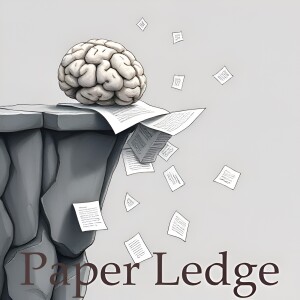

Computation and Language - Unsupervised Post-Training for Multi-Modal LLM Reasoning via GRPO
Hey PaperLedge learning crew, Ernis here, ready to dive into some seriously cool AI research. Today, we're tackling a paper that asks: Can we teach AI to teach itself, without needing tons of human-labeled data?
Think about it this way: Imagine you're trying to learn a new language. You could have a tutor constantly correcting you (that's like supervised learning, and it's expensive!), or you could try to figure it out yourself by talking to people and seeing what works. This paper explores the latter approach for _Multi-modal Large Language Models_ (MLLMs), which are basically AIs that can understand both text and images.
The big problem the researchers are addressing is that improving these MLLMs usually involves _supervised fine-tuning_ or _reinforcement learning_, both of which need lots of carefully labeled data. Getting that data is expensive and time-consuming. So, the goal is to find a way for these models to get better on their own.
- Supervised fine-tuning = The AI is directly told what it needs to do (expensive and time consuming).
- Reinforcement learning = The AI gets rewarded for good behavior (still needs lots of data and human input).
Previous attempts at unsupervised post-training (teaching the AI without human help after its initial training) have been complicated. This paper introduces something simpler and more effective.
They're using something called _GRPO_, a stable and scalable online reinforcement learning algorithm. Think of it like giving the AI a set of rules and letting it experiment to find the best way to follow them. The key innovation here is a self-rewarding mechanism. Instead of a human telling the AI what's good, the AI decides for itself!
Here's how it works: The AI generates multiple responses to a question, then "votes" on which response is the best. It's like having a group of students debate an answer and decide collectively which one is correct. The winning answer becomes the "reward" for the AI, encouraging it to generate similar responses in the future.
"MM-UPT offers a new paradigm for continual, autonomous enhancement of MLLMs in the absence of external supervision."They call their method _MM-UPT_, which stands for "Multi-Modal Unsupervised Post-Training." It's a framework built on GRPO, replacing traditional reward signals with this self-rewarding mechanism.
The results are impressive! They tested MM-UPT on a model called Qwen2.5-VL-7B, and it significantly improved its reasoning abilities on tough tasks like solving math problems from images (MathVista) and web pages (We-Math). In some cases, it even approached the performance of models trained with supervised learning!
- MathVista: 66.3% -> 72.9%
- We-Math: 62.9% -> 68.7%
And here's the really mind-blowing part: they found that they could further boost performance by feeding the AI synthetic questions generated by the AI itself! It's like the AI is teaching itself by asking and answering its own questions. This opens up a path for _scalable self-improvement_, where the AI can continually get better without needing external data.
So, why does this matter?
- For AI Researchers: This offers a new, more efficient way to improve MLLMs.
- For Businesses: It could lead to more powerful and cost-effective AI solutions.
- For Everyone: It moves us closer to truly autonomous AI that can learn and adapt on its own.
This research offers a promising glimpse into the future of AI, where models can continually learn and improve without relying on expensive and time-consuming human intervention. It's a step towards more sustainable and scalable AI development.
Now, some questions that pop into my head:
- How do we ensure the AI doesn't get stuck in a "filter bubble," only reinforcing its existing biases?
- Could this self-improvement approach lead to unexpected or even undesirable behaviors in AI?
- What are the ethical implications of allowing AI to generate its own training data and essentially teach itself?
That's all for this episode, learning crew. Until next time, keep exploring!
Credit to Paper authors: Lai Wei, Yuting Li, Chen Wang, Yue Wang, Linghe Kong, Weiran Huang, Lichao Sun
More Episodes
All Episodes>>Create Your Podcast In Minutes
- Full-featured podcast site
- Unlimited storage and bandwidth
- Comprehensive podcast stats
- Distribute to Apple Podcasts, Spotify, and more
- Make money with your podcast












